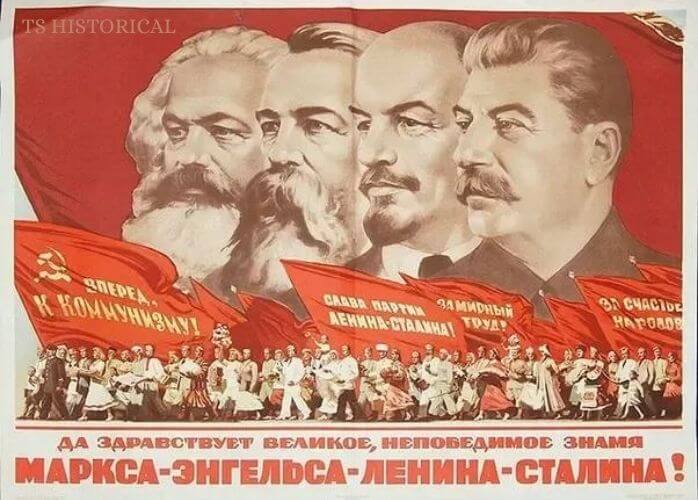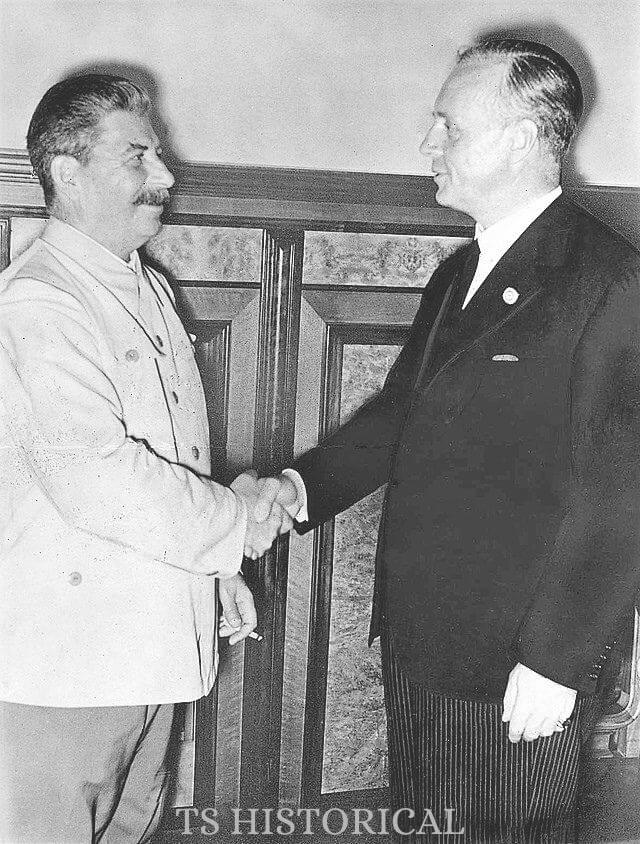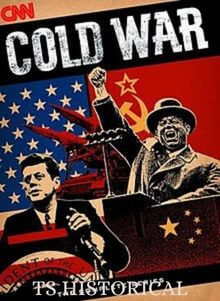Table of Content
Soviet Union
In the early 1900s, the Russian Empire was ruled by a single man, Tsar Nicholas II, who exercised complete control over every aspect of the country. The population of Russia was poor, stupid, and hungry, and wouldn’t look out of place in any time period in the past thousand years.

In 1914, the Russian Empire declared war on Germany, starting a long, painful war, characterized by the age-old Russian war tactic of swamping the enemy with troops and hoping for the best. After the first year of the war, nearly everyone who was in the Russian army by the start of the war had been killed or wounded. There were a lot of food shortages. Mutiny broke out among the soldiers.
Everyone was simply fed up with the battle. Eventually, the people decided they had had enough and overthrew the government, forcing the Tsar to abdicate and hand over power to a provisional government. Meanwhile, in Switzerland, this dude, Vladimir Lenin, looked at this and thought that the time was now for a continent-wide Communist revolution.

What is communism?
In the shortest possible way; rich people exploit poor people so poor people should overthrow rich people and take control over the country and then eventually countries, money, war, and All forms of inequity, hunger, and poverty will vanish. So Lenin got on a train to Russia to take over the country and the Germans just let him do it for the ‘bants’. When he gets to Russia he tells all his communist buddies in the Bolshevik party that the time to take control is now. The Provisional Government had scheduled elections in November 1917. “Hang on” thought Lenin and the Bolsheviks.
“The Provisional Government has about as much legitimacy as we do because no one elected them.” But if they hold and win an election then they have legitimacy and we don’t have any legal argument to take over the country. So what if we launched a coup and took over the provisional government before the elections can be held and then hold elections so then we have legitimacy? Ho ho ho delightfully devilish, Lenin”.
Download this Article in PDF Format
Get a well-documented version of this article for offline reading or archiving.
Download Now (1008 KB)So they did. And then they held the elections. And lost them, coming to a distant second place to the…uh…provisional government. [Curb your Enthusiasm theme] “Well, we tried. Time to take over the country by force”. So they did. A lot of people were understandably very annoyed at this, so formed a coalition called the White Army, made up of provisional government supporters, Socialists, Social Democrats, Capitalists, and even people who wanted the Tsar back. Sucks for them because in March 1918 the Bolsheviks had him taken into a basement and shot.
The Soviet Union and the United States
This coalition went to war with the Bolsheviks in an attempt to regain control over the country and was helped along the way by Britain and the USA. This wasn’t enough however as by 1922, the rule of the Bolshevik, or “Communist”, the party had been cemented. With all that out the way, it’s time to fix Russ- uh, the Union of Soviet Socialist Republics.
Lenin’s top economists drew up an idea called New Economics, where the government will take 50% of what you produce and redistribute it to society and then you can sell the rest or keep it or whatever I don’t care. Half of the party think that this is a good idea and this should basically be communism but the other half thought it should only be kept in place until a more communist-er idea could be found.
Thankfully both sides are united by Lenin so they’ll just do whatever he– oh shit he’s dead. So now we need to elect a new leader and there are a bunch of candidates, but everyone knows it’s gonna be this guy, Leon Trotsky who was Lenin’s For the majority of the revolution, he was his right-hand man.
Trotsky’s Struggle against Stalin
Trotsky was a member of the “New Economics is groovy and exciting” group, and he wished to see other countries become communists. However, this guy, Joseph Stalin, is the exact opposite they thought New Economics was uncool and wanted to focus on communism in Russia before spreading it around the world. And surprise, Stalin wins.
Then he has all his opponents exiled and executed. With complete supreme control of the party, Stalin now needed complete supreme control of the country. Why not do what the Tsar did and keep your population too stupid and poor to rebel against you? Wait no that made him lose a war and his life. What if we killed anyone, and I mean literally anyone, who we suspect could do anything less than show their complete eternal loyalty to me personally? And then ban non-communists from elections, and then ban freedom of expression, and then ban religion and freedom of movement, and abortion, and same-sex relationships, and art.
Stalin said that the Soviet Union was fifty to a hundred years behind the rest of Europe in terms of social and political developments, and if they didn’t shape up quickly the other western powers would be able to steamroll them in a war. So, the USSR embarked on a rapid modernization plan known as the Five Year Plans. The plans organized every aspect of the economy down to the last worker and each five-year plan focused on a different sector of the economy.
The first two plans went swimmingly, aside from a couple of genocides in Ukraine [cough cough], and the Soviet Union went from a feudal rural economy to full industrial power. Halfway through the third plan, however, Stalin noticed that Germany was getting a bit too tetchy for his liking and might be ready to start a war, which the USSR wouldn’t be ready for until at least 1945.

Foreign Minister of the Soviet Union This Word Molotov met with German Foreign Minister Yohahim Von Ribbentrop and signed an agreement in which they would both invade Poland at the same time and then remain neutral. So, in September 1939, they invaded and conquered Poland completely. Thankfully, Germany accepted full responsibility and launched a war on the wrong side of Europe. That has given us some breathing room to prepare. We should be ready for war in 1945 if we are not invaded. You’re probably guessing where this is headed. [Night on a Bald Mountain] [Night on a Bal The USSR is eventually able to force the Axis back all the way to Berlin.
On its journey to Germany, the USSR made a pit stop in Eastern Europe to free the region from Nazi domination and hold elections so that these countries could now decide their own fate. What a shock that they all voted to become Soviet-aligned communist satellite states…why would they do that? The United States, which had previously shown little interest in the Soviet Union, was worried by this and adopted a containment policy to ensure that the Soviets would not expand Communism further. They even spent several months flying in supplies to defend their section of Berlin from a Soviet siege.
Cold War

This is the start of the Cold War, where Russia and the USA tried to outdo each other in all aspects of everything, to try and prove that their respective system was the best. In military size, strength, number of satellite states, economy, secret intelligence, quality of life, sport, science, cinema, chess, anything you can think of, really.
The Soviet Union began to fund communist rebellions and uprisings across the world, which sometimes worked and sometimes didn’t, while the USA did the same. In 1949 the Soviet Union developed its first Atomic Bomb, putting its military power on par with the Americans. Of course, neither side used the bombs as this would result in the death of all life on earth,
so it’s best just to continue with the international dick-waving contest rather than actually fighting. And then suddenly Stalin died after having a stroke and pissing himself, so he was replaced by Nikita Khrushchev, one of Stalin’s closest advisers and former governor of Ukraine. Back home, the number of Soviet deaths in this period decreased dramatically and after one last famine in 1948, the USSR didn’t experience any more famines or mass purges.
In fact, a CIA report from the 70s stated that the caloric intake of the average Soviet citizen was only slightly lower or even on par with the average American. Furthermore, the poverty rate in the USSR of 20% is only just above the USA’s 19.5%. Khrushchev said that full Communism would be achieved by the 1980s and this whole Soviet Union nonsense was just a transitional measure, and people seemed to accept that. Seems if you put an early access sticker on something that isn’t finished, people will still buy into it.
In the meantime the Soviet government under Khrushchev built tons of apartment blocks meant to be temporary housing until Communism could become real and then everyone would live in really nice modular homes As of 2019 there are still thousands of them all around the former Soviet Union and in places like Latvia, 66% of the population still lives in them.
Because the soviet economy was so middling, the Soviet government tried to show it was better than capitalism by instead leading the exploration of the space frontier. Soviet art and literature had a real fetish for space exploration, thinking that when Communism was achieved on earth, humanity could branch outwards and explore the universe. Using stolen German rocket technology, the Soviets were able to launch a satellite into space in 1957, which relayed a series of beeps to prove it had got there.
This initiated what is known as the Space Race. Unlike the USA, where all the scientists were unified, the Soviet government tried to play their rocket scientists against each other to increase competition and achieve faster results. This partially worked, as the USSR was first to send a dog into space, followed by a man, and then we were trying to get to the moon when the USA burst in a got there first. But an impressive record nonetheless.
Cuban Missile Crisis
In 1962, the Soviet government began building missile silos on the newly-communist island of Cuba, which alarmed the USA because while the US had missile capabilities to hit any part of the USSR, the USSR did not yet have the ability to do the same to the US. So the Americans set up a naval blockade around Cuba and told the Soviets that they were going to inspect everything that comes through for nukes and if not they were going to shoot them.
So in order to not stop the nuclear war from not being not a thing, the Soviets just said “eh, we’ll stop giving Cuba nukes if you stop giving Italy “And Turkey nukes,” the US said, “Oh, okay.” And everyone else whose lives depended on the US and Soviet Union not being idiots all breathed a sigh of relief. By 1964 excessive spending on foreign wars and the space race and a system that didn’t generate wealth meant that the Soviet economy ground to a halt for the next twenty years. All in all, the Soviet Union’s economy was only around the size of Italy.
The new Soviet leader, Leonid Brezhnev, sought more peaceful relations with the United States so they didn’t have to spend as much on the military. In 1972 they signed the SALT agreement, limiting the number of nukes each one of them was allowed to build. The proxy conflicts and nuclear tensions with the United States appeared to be coming to an end. One of the USSR’s final military interventions came when they invaded Afghanistan in the 1980s.
In response, the USA and other western powers boycotted the 1980 Moscow Olympics, meaning the Soviets and the East Germans just won every event. Interestingly still on drugs though. In response, the Soviet Union boycotted the 1984 US Olympics. Afghanistan was effectively a Russian counterpart of the Vietnam War, in that the war was a catastrophic disaster and the forces were forced to cancel. And now, a bit about Chernobyl. Because I couldn’t fit it into any other part of the script. To keep up with the energy demands of the vast Empire the government had been investing more in nuclear power, building them all over the country.
However, they were all poorly run, leading to a certain nuclear facility in Pripyat blowing its top and spewing radiation everywhere. Initially, the government tried to cover it up because the glorious soviet dictatorship of the proletariat was incapable of making mistakes, but when power plants in Sweden began showing indicators of dangerously high radiation levels The rest of the globe had picked up on the fact that something was wrong.
The region surrounding the factory was evacuated, and it is still unsafe to live there. until the two-hundred and thirtieth century. After Brezhnev and a bunch of other irrelevant Soviet leaders died, Michael Gorbachev became the Soviet chairman. Gorbachev decided that it was basically time to stop mucking around with this state capitalism nonsense and finally commit to making communism real.
There are two ways to do this;
- Making the government more transparent and accessible to the average Joe.
- Rebuilding the government and economy so it’s actually a bit more communist.
So for the first point, they made it legal to make criticisms of the government, of which there were…a lot.
They also legalized western media. Then, for the second part, they made the USSR’s leader an actual elected President, rather than whoever was the Communist Party’s chairwoman, and then legalized capitalism. in certain scenarios, provided the businesses were run by the workers who worked there. This means McSoviets were created, and Russians were allowed to eat glorious western fast food. Then, Gorbachev organized the first free election in Soviet history, allowing non-communists to become representatives. Boris Yeltsin, a pro-Democracy kind of guy, was soon elected president of Russia.
This really annoyed hardline Stalinists, so they kidnapped Gorbachev and tried to set up an interim government to restore order. It’s time for Yeltsin to save the day, not because he particularly liked Gorbachev but because he wanted to be the one to stage a coup instead. So he did. In addition, Russia, Ukraine, and Belarus declared their independence from the Soviet Union.
Then so did Latvia, Lithuania, Estonia, Kyrgyzstan, Uzbekistan, Turkmenistan, Tajiki- okay, so basically everyone tried to declare independence from the USSR. Except for Kazahkstan. So for about five days, the Soviet Union looked like this. His hands tied, Gorbachev signed a document, officially dissolving the Soviet Union on December 25th 1991.
Discover more from TS HISTORICAL
Subscribe to get the latest posts sent to your email.

